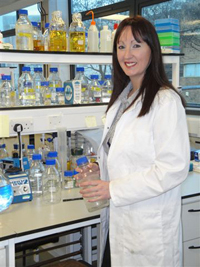Lancaster Researchers Developing Parkinson's Blood Test

More than 200 Lancashire residents have volunteered to help researchers at Lancaster University in their quest to develop a blood test for Parkinson’s Disease (PD).
Dr Penny Foulds, School of Health and Medicine, is working towards developing a blood test to detect the onset of the disease and map its progression.
The test will measure the levels of a protein called alpha-synuclein in the blood. Researchers believe that this protein – found in human plasma – could be a useful marker for the diagnosis and progression of Parkinson’s disease.
In order to test their theory, they have called upon volunteers from across the region that have been recently diagnosed with the disease and are willing to have a series of blood tests over a two to three year period. The study is funded by the Medical Research Council.
PD is an age-related movement disorder, effecting around 140,000 people in the UK everyyear and with an ageing population this figure is set to rise. Symptoms include tremors, muscle rigidity and a slowness of movement. There is no cure but some symptoms can be controlled by drugs in the early stages of the disorder.
Dr Foulds, who works with Professor David Allsop’s group studying a wide range of brain diseases, including Alzheimer’s and motor neurone disease, said: “The earlier we can treat PD the better. By the time symptoms appear, around 70 per cent of the relevant brain nerve cells may have been lost but at the moment there is no reliable laboratory test that can help diagnose the disease.
“Currently, the most advanced tests for PD are based on brain imaging. However, these imaging methods are costly and inappropriate for routine clinical practice so it’s really important to seek new biochemical tests which can be easily and economically incorporated into routine care.”